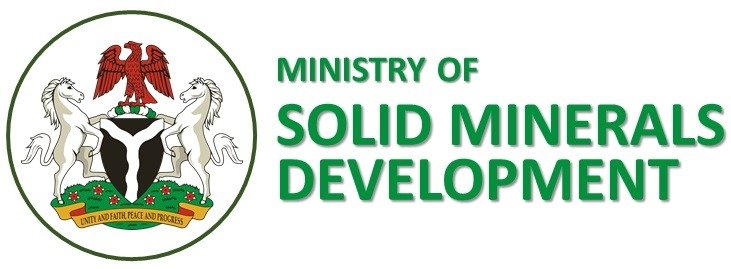Understanding Sustainable Mining Practices
Sustainable mining practices refer to methods employed in the extraction of minerals that seek to minimize the negative environmental impacts while maintaining economic growth. The need for sustainable approaches has become increasingly critical in Nigeria, as the mining sector plays a significant role in the nation’s economy. However, the consequences of traditional mining methods can lead to extensive environmental degradation, adversely affecting local communities and ecosystems. Sustainable mining aims to strike a balance between the demand for mineral resources and the need to preserve the environment for future generations.
The core principles of sustainable mining practices encompass resource conservation, efficient waste management, and active community engagement. Resource conservation involves the responsible utilization of materials, ensuring that non-renewable resources are extracted at a rate that does not exceed their natural replenishment. This principle encourages mining companies to invest in technologies that increase the efficiency of resource recovery, thus minimizing the overall environmental footprint.
Waste management is another critical aspect of sustainable mining. Proper management of mine waste can significantly reduce pollution and protect local water sources. Implementing strategies for reducing, reusing, and recycling mining byproducts not only mitigates environmental harm but also fosters economic efficiency. This can involve treating wastewater, enhancing the recycling of materials, and repurposing waste for other industrial applications.
Finally, community engagement is fundamental in establishing a sustainable mining paradigm. Collaboration with local communities ensures that the voices of those most affected by mining operations are heard. By involving local stakeholders in decision-making processes, mining companies can better align their operations with community needs, fostering positive relations and promoting socio-economic development. In sum, adopting sustainable mining practices is essential for enhancing the long-term viability of Nigeria’s mining sector while safeguarding its natural resources. This holistic approach fuels economic growth without compromising ecological health.
The Current State of Mining in Nigeria
Nigeria’s mining sector has experienced fluctuations over the years, contributing significantly to the nation’s economy while grappling with various environmental challenges. At present, the country is rich in diverse mineral resources including, but not limited to, tin, coal, gold, limestone, and gemstones. Although various types of minerals are being extracted, tin mining in the Jos Plateau and coal mining in Enugu remain among the most notable, reflecting the historical significance of these resources within the local and national economies.
The economic impact of mining in Nigeria has been substantial. The sector provides livelihoods to many communities, generates revenue, and attracts foreign investment. However, the reliance on traditional mining practices has given rise to severe environmental repercussions. Deforestation is a prevalent issue, as mining operations often require clearing expansive areas of forest land to access mineral deposits. This loss of biodiversity poses a significant threat to local ecosystems and contributes to climate change.
Water pollution is another critical concern linked to conventional mining methods. The discharge of waste materials and chemicals into waterways contaminates local water supplies, adversely affecting both human populations and wildlife. Additionally, habitat destruction due to mining activities has led to the displacement of numerous species, further underscoring the environmental costs associated with the extraction processes.
Given these challenges, there is a pressing need for urgent reforms in the mining sector of Nigeria. It is essential to align mining practices with sustainable development goals, ensuring that economic activities do not come at the expense of environmental integrity. By adopting more environmentally responsible methods, Nigeria can work towards balancing growth in the mining sector with ecological preservation.
Implementing Eco-Friendly Practices in Nigeria’s Mining Sector
The mining sector in Nigeria represents a significant opportunity to adopt eco-friendly practices that are crucial for sustainable development. One effective approach entails the integration of green technology, which includes the utilization of renewable energy sources such as solar and wind power. These technologies reduce greenhouse gas emissions, lowering the overall ecological footprint of mining operations. Additionally, energy-efficient machinery can be employed to enhance productivity while minimizing energy consumption.
Proper waste management techniques also play a critical role in implementing sustainable mining practices. Mining companies should invest in waste recycling programs which can significantly reduce the volume of waste produced. This may include the recycling of certain materials, such as metals and water, which aligns with the principles of a circular economy. Furthermore, the establishment of stringent waste disposal regulations is necessary to prevent land and water pollution, ensuring that the surrounding ecosystems are protected from toxic materials.
Another essential component of sustainable mining is the restoration of mined land. After the extraction activities are concluded, mining companies can undertake land rehabilitation efforts by reintroducing native vegetation and creating wildlife habitats. This not only helps to restore the ecological balance but also enables the area to be repurposed for agriculture or community use, thus benefiting local populations.
Government policies and regulations play a pivotal role in promoting these sustainable practices. By implementing frameworks that incentivize the adoption of green technologies and environmental protection measures, the government can foster a culture of responsibility among stakeholders. Collaboration between mining companies, local communities, and environmental organizations is essential. Such partnerships can facilitate knowledge sharing, resource allocation, and the establishment of best practices in sustainable mining.
Case Studies and Success Stories
Across the globe, various countries have embarked on implementing sustainable mining practices with significant success, providing a valuable blueprint for similar initiatives in Nigeria. One notable example is the Nambija mining area in Ecuador. After grappling with severe environmental degradation due to irresponsible mining activities, the Ecuadorian government, alongside local communities, initiated a sustainable mining project. This effort emphasized reforestation, proper waste management, and community engagement, leading to a rejuvenated ecosystem and improved livelihoods for local residents. The project not only restored the environment but also fostered economic resilience by promoting eco-friendly tourism and alternative livelihoods.
In Australia, the implementation of the Rehabilitation and Environmental Management Plan (REMP) in the mining sector has demonstrated beneficial outcomes. Mining companies are mandated to incorporate sustainable practices that prioritize land rehabilitation post-mining. As a result, several former mining sites have been transformed into thriving natural habitats. This initiative has facilitated biodiversity recovery and enhanced community well-being, as local populations gain access to sustainable facilities and improved land usage, which bolsters local economies.
Similar initiatives in Nigeria, such as the state-level adoption of sustainable mining practices aimed at minimizing environmental impact, have shown promising results. One example includes the recent collaboration between the government and artisanal miners to formalize small-scale mining operations. By providing training in sustainable techniques and eco-friendly equipment, these local miners have not only increased their harvest but have significantly reduced environmental degradation.
To further elevate sustainable mining in Nigeria, it’s crucial to scale successful practices both locally and nationally. Recommendations include incentivizing existing mining operations to adopt sustainable methods, fostering partnerships between government authorities and mining companies, and enhancing community awareness about the significance of sustainable practices. By implementing these strategies, Nigeria can harness the economic potential of its mining sector while ensuring environmental responsibility.




